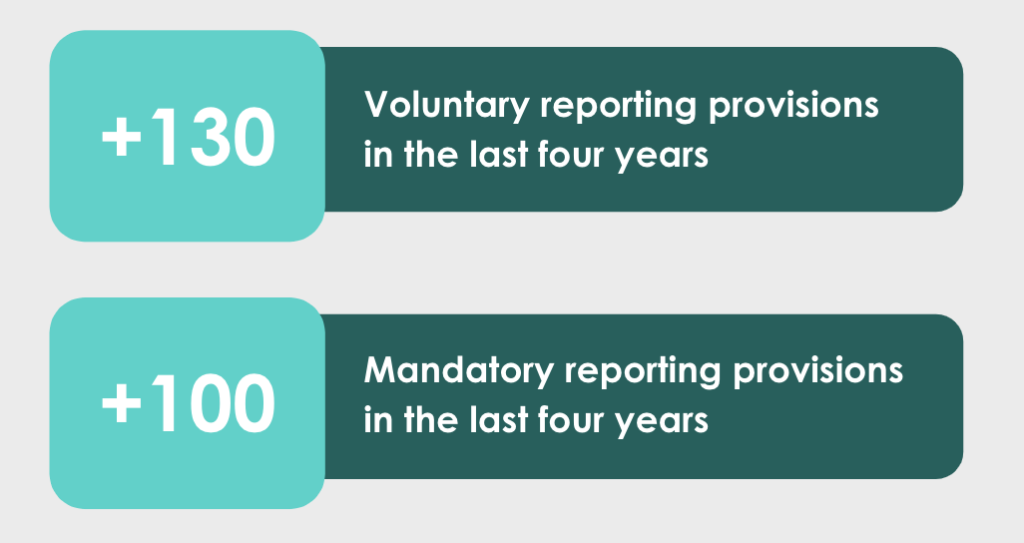From financial to sustainability audits
Financial statement auditing has long been a standard practice by skilled professionals following strict standards. However, the landscape of corporate operations is evolving, with a growing emphasis on non-financial information, especially in matters related to sustainability. This has led to the inclusion of sustainability reporting in company disclosures. This paradigm shift mandates that the same level of assurance applied to financial information should now be extended to sustainability-related information. This article aims to provide guidance on conducting successful sustainability audits and understanding their importance in the evolving sustainability landscape.
Navigating the evolving regulatory landscape
The demand for investments aligned with sustainability goals has intensified, necessitating companies to provide accurate and transparent information, free from the pitfalls of “greenwashing.” With many firms voluntarily reporting on their sustainability performance, new regulatory requirements emphasize the importance of obtaining assurance over the disclosed sustainability information. With over 130 voluntary and 100 mandatory reporting provisions in the last four years, navigating this evolving terrain poses significant challenges for companies at different stages of their sustainability journeys. Beyond what might be perceived as a constraint, applying the same requirements to sustainability indicators is excellent news for the market. Deepki is convinced that this is the right way forward to further recognise the importance of these indicators and to continually improve their reliability.

Navigating the diverse landscape of sustainability auditing
The current panorama shows a growing number of disclosure obligations related to climate change. Frameworks, such as the Sustainability Accounting Standards Board (SASB), Global Reporting Initiative (GRI), and European Sustainability Reporting Standards (ESRS), serve as the basis for evaluating a company’s activities during an audit. Additionally, there is a growing recognition of the benefits associated with aligning with the Task Force on Climate-Related Financial Disclosures (TCFD) requirements.
In the US, the Securities and Exchange Commission (SEC) rules and the Public Company Accounting Oversight Board auditing standards do not currently require an auditor to attest to sustainability information. However, regulators in specific countries and industries increasingly require sustainability metrics, signaling a shifting regulatory landscape.
Investors agree that the current patchwork of auditing practices offers only insufficient assurance. It falling far short of the higher standard applied to a company’s financial statements. Streamlining the auditing process of sustainability information and including safeguards from the data collection stage, as was the case for financial information, is undoubtedly the next challenge for the sustainability field.
Platforms for collecting sustainability data are an asset for facilitating this process. They pave the way for the professionalization of sustainability data processing by providing official proof of assurance that meets the exact requirements of their financial peers. It is one thing to align disclosures with common indicators, incorporating industry and experts’ good practices, but it is another to assure the data used to construct these indicators. The two are complementary and necessary.
What is a sustainability audit?
Sustainability comprises a set of criteria used by investors to assess the non-financial performance of a company. It has become integral to annual reports, aligning with traditional financial data. Sustainability audits, a relatively new concept for clients, expand audit requirements from financial data to sustainability data. This shift challenges teams to adapt familiar processes, making the audit process more complex.
Read more: ESG, an operational shift for real estate companies.
The necessity for a sustainability audit arises from the progressive integration of sustainability criteria into annual reports. While traditional audits focus solely on financial data, the sustainability audit has become imperative due to the growing importance of non-financial aspects. The evolution of sustainability factors to equal standing with financial factors marks a positive development.
The importance of sustainability audits
Sustainability reporting has transitioned from voluntary to a potentially mandatory procedure as investors increasingly demand sustainability disclosures. The accuracy and consistency of reporting are crucial, demanding the same level of control and management as financial and other non-financial disclosures. Investors, consumers, employees, and regulatory bodies increasingly rely on sustainability disclosures to assess an organization’s long-term viability, ethical practices, and environmental impact.
Missteps in sustainability reporting are costly, and companies are starting to pay attention. Sustainability reporting has become a powerful mechanism for organizations to communicate sustainability efforts and demonstrate stakeholder accountability.
However, without rigorous assurance, there is a risk of inaccurate or incomplete reporting, leading to diminished stakeholder trust. Audit and assurance services are pivotal in independently verifying and validating reported sustainability information, fostering transparency, strengthening stakeholder relationships, and ensuring organizations are accountable for their sustainability commitments.
Deepki’s role in easing the sustainability audit process for clients
Navigating the complexities of sustainability data and reporting poses challenges for clients, particularly given the relatively recent incorporation of sustainability into annual reports.
Deepki’s SaaS platform places reporting as a strategic cornerstone, offering a cutting-edge technology solution to simplify reporting processes by providing reliable indicators and transparency. Deepki intervenes upstream of audits, addressing data quality, evidence collection, and reporting challenges. The Deepki platform leverages advanced technology, including ESG data aggregation tools that automate data-gathering processes, mitigating the risk of manual errors and accurately reflecting a company’s sustainability performance.
An important distinction is that Deepki is now officially assured for audit purposes, making it the sole platform with this advantage for auditors. Deepki’s ISAE 3000 type 2 attestation ensures a comprehensive internal control system is suitability designed to mitigate and control risks related to the quality of processed data.
Ensuring data quality: Deepki’s ISAE 3000 type 2 attestation
ISAE3000, the international standard for providing assurance on the quality of non-historical financial information, is edited and issued by the International Auditing and Assurance Standards Board (IAASB).
Deepki’s ISAE 3000 Type 2 attestation, obtained in November 2025 following an external audit led by KPMG, ensures that Deepki has implemented a robust internal control system that is suitability designed to mitigate all the risks that could alter the quality of the data proceed by Deepki.
As the ISAE 3000 standard mirrors the ISAE 3402 standard (designed for financial data), Deepki is the first player in ESG for Commercial Real Estate to provide a level of assurance for non-financial information equivalent to that usually provided for financial information.
Deepki leverages its extensive experience collaborating with industry leaders to highly advance and streamline our clients’ audit processes. The sustainability audit process, complex in nature, involves crucial stages such as campaign preparation, data collection, review, audit, validation, and finally, data freeze and formatting. Deepki’s in-house teams provide comprehensive support throughout this intricate process. They assist clients in understanding the preparation needed for sustainability audits, offering support and training to property managers responsible for data collection. As regulations become stricter, Deepki stays ahead of the market to anticipate customers’ needs and guide them toward meeting their obligations. The synergy of technology and services plays a pivotal role in effectively addressing these challenges.
Check out the replay of our webinar on Deepki’s Winter Product Highlights.
Embracing sustainability audits
As sustainability professionalizes, the audit process shifts from a financial focus to a holistic examination of a company’s sustainability practices. Deepki stands ready to support clients in navigating this complex landscape, offering tools, data, and a comprehensive approach to streamline the audit process. By independently verifying sustainability data, strengthening internal controls, and fostering stakeholder trust, auditors contribute significantly to organizations’ sustainability efforts.
In an era where sustainability considerations are paramount, harnessing the power of audit and assurance will be crucial for organizations seeking to drive sustainable progress, build stakeholder trust, and create a better future for all.
Explore our comprehensive E-book for in-depth insights into principal entity-level sustainability standards and reporting frameworks. Download your copy now to empower your organization to embark on the journey towards net zero.

EBOOK
Landscape of the principal entity-level ESG standards and reporting frameworks
INREV, ISSB, TCFD, CSRD, IFRS, ESRS… Discover the requirements and distinctions between the various reporting standards and initiatives.


